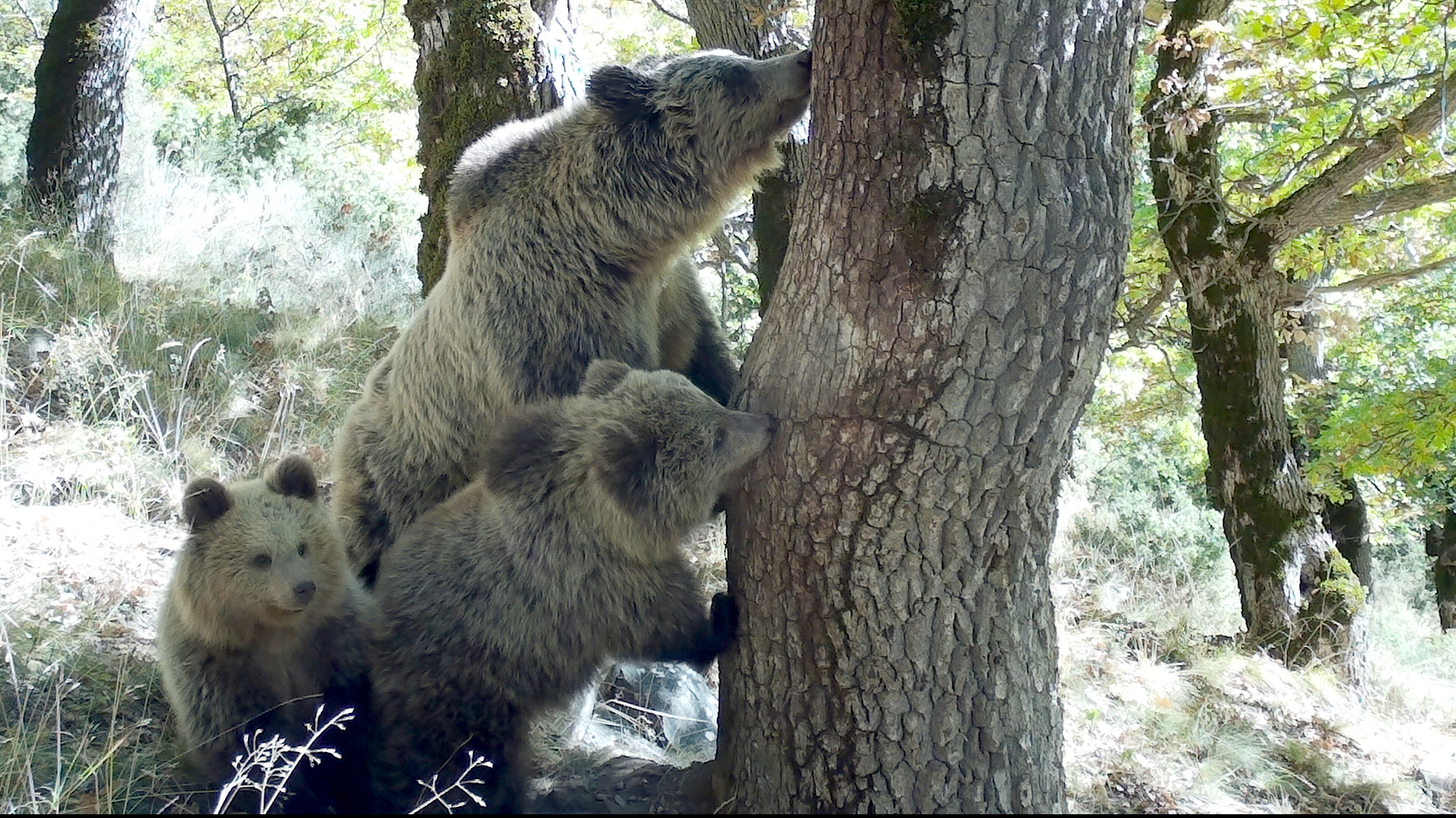LoupO project identifies at least 70 bears and 8 wolves since 2019 in the Pyrennees

Coordinated by the UAB, the European project which is now finalising has strengthened collaborations across borders and developed a plan to monitor bear (Ursus arctos) and wolf (Canis lupus) populations in the French, Spanish and Andorran regions of the Pyrenees.
30/05/2022
The main objective of the LoupO project consisted in developing a cross-border plan for the monitoring and follow-up, particularly genetically, of the bear and wolf populations of the Pyrenees, two species which form part of the natural heritage of the states of Spain, France and Andorra. The populations of both species move across borders: bears reproduce in the central Pyrenees (Alta Garona, Arieja, Val d’Aran and Pallars) and through the sighting of male wolves, populations are seen to exist in the pre-Pyrenees and the Eastern Pyrenees.
Since the beginning of the project, over 500 non-invasive samples (fur, droppings, urine in the snow) were collected and used to identify bears and wolves living in the Pyrenees. The genetic ad ecological data (obtained through camaras, observations, remains of domesticated and wild prey) has allowed scientists to identify at least 70 different bears in all of the Pyrenees and at least 4 wolves in the Catalan part of the Pyrenees. Some isolated individuals were also detected in the Aragon region and also on the French side of the mountain range. All of the information was put together in a database created jointly with the other project partners.
LoupO has helped to strengthen cross-border collaborations, which are so vital to the management of both species. The partners have developed, standardised and unified the methodologies used to conduct genetic and on-land monitoring of wolves and bears found in the Pyrenees.
The project, with a total budget of €1,250,109, was 65% co-funded by the European Regional Development Fund (ERDF) through its INTERREG V-A Spain-France-Andorra (POCTEFA 2014-2020), a European regional cooperation programme created to foster sustainable development of cross-border regions of the three countries. In the 2.5 years that the project took place, coordinated by researcher Natalia Sastre of the Department of Animal and Food Science at the Universitat Autònoma de Barcelona, the LoupO project included beneficiary partners such as the Rural Agents of the Ministry for the Interior (GENCAT), the General Council of Aran, Forestal Catalana, SA, and the Laboratoire d’Ecologie Alpine (CNRS); associate partners included the Department of Climate Action, Foof and Rural Agenda (GENCAT), the Office Français de la Biodiversité, the Direction Régionale de l'Environnement, the Aménagement et du Logement (Occitania), the Government of Aragon and the Ministry for the Environment, Agriculture and Sustainability (Government of Andorra).
Learning More About Both Species
The Poctefa-Loupo project has allowed scientists to discover more about how the two species are distributed. In the case of bears, distribution maps were created according to the abundance of samples in each area, making it easier to apply management measures of different intensities, including damage prevention areas in new areas of expansion, with the aim of anticipating any conflicts that may arise.
The programme also aided in studying the microbiome and diet of the wolves and bears. Scientists confirmed that the Pyrennean bear's diet is mainly made up of plants, with a predominance of Fagaceae plants, such as beech and oak. The wolves' diet could only be determined based on 11 excrements, with the main element of their diet being roe deer. Their intestinal microbiome of bears and wolves are relevantly different as well, with a difference in bacteria such as Streptococcus and Escherichia shigella, which are found abundantly in bear samples but not detected in any of the wolf samples.
The project also organised educational activities in schools and universities, dissemination actions and support for farmers, such as providing dogs to protect livestock, using drones and helicopters to search for lost livestock and prevent attacks, and support for farming logistics and infrastructures.
POCTEFA 2014-2020
The LoupO project was programmed in the third call of the POCTEFA 2014-2020 Programming Committee, which consists in the fifth generation of community funding aimed at strengthening the economic and social integration of the cross-border region of France, Spain and Andorra. Funding mainly goes towards implementing economic, social and environmental activities created by joint strategies aimed at fostering sustainable regional development.
This information is related to the following SDG
Life on land